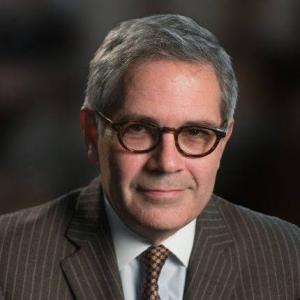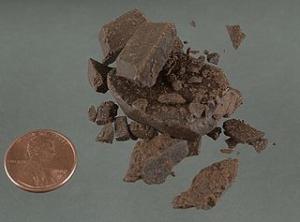Larry Krasner is shaking things up in the City of Brotherly Love.
A Democratic presidential contender rolls out a package of veterans' medical marijuana bills, the Alabama Senate has approved a restrictive medical marijuana bill, edibles are coming to Maryland, and more.
The Senate minority leader refiles a bill to end federal marijuana prohibition, North Dakota decriminalizes, New Jersey's legalization effort appears stalled, and more.
Civil rights and civil liberties groups join drug and sentencing reformers in calling for a moratorium on DEA enforcement actions, residents of Cowtown takes to the streets in support of legal weed, Italy's hard right interior minister picks a fight with low-THC weed sales, and more.
New Jersey and New York efforts to legalize pot this year are faltering, New Jersey expands its medical marijuana system, US AID sends $160 million to Colombia, and more.
It's a tale of the good, the bad, and the ugly for marijuana legalization at the statehouse this week, Bahrain is set to execute two hash smugglers, and more.
Philadelphia District Attorney Larry Krasner made waves last week by reportedly saying he is "very close" to implementing a policy that would decriminalize the possession of all drugs, but that was just the latest salvo in the former criminal defense and civil rights lawyer's war on the war on drugs.

Philadelphia's progressive District Attorney Larry Krasner (KrasnerforDA.com)
Since taking office in January 2018, Krasner has made a number of policy moves that are helping to cement his reputation as one of the country's most radical prosecutors, and he's doing it in one of America's largest cities. His progressive approach didn't come out of nowhere, though.
Krasner's decades of experience in the defense bar -- as opposed to rising through the ranks of prosecutors -- have provided him with a unique perspective on the social and racial impacts of the drug war, one deeply at odds with the law-and-order views of most DAs. For 30 years, Krasner represented the poor, the oppressed, and the brutalized, filing civil rights and police brutality lawsuits.
He often represented protestors and activists, including 400 people arrested at the 2000 Republican National Convention, AIDS activists, and members of the Black Lives Matter movement. He helped hundreds of imprisoned on false charges by a notoriously corrupt drug squad. And he sued the Philadelphia police dozens of times in civil rights and police brutality cases. This is not the career path of your average DA.
In an early sign that a new era is at hand, one of Krasner's first acts was to demand the resignations of 31l ine prosecutors and supervisors he saw as obstructionist and to see them escorted from the building to ensure they didn't take anything with them other than personal effects. Krasner said he made the quick move on the advice of Houston's reformist DA, Kim Ogg, who told him that when she gave inherited personnel two weeks' notice she would be asking for resignations, recalcitrant employees deleted massive amounts of emails, wiped hard drives, and took other steps to sabotage her efforts.
Critics called his move a purge, but for Krasner, it was lessons learned: "We had some awareness from working as attorneys in this city -- and interacting with people [in the office] -- of who was really never going to get with this program," he says. "I felt we couldn't take the risk that there might be some effort at sabotage here."
Krasner got national attention the following month when he issued a revolutionary memo on prosecuting policies designed to "end mass incarceration and restore balance to sentencing." The memo said prosecutors must decline certain charges, namely marijuana possession and prostitution. The ban on pot prosecutions held regardless of weight, and included not charging for paraphernalia or for getting caught buying weed. The ban on prostitution prosecutions applied to anyone who had fewer than three previous prostitution convictions; those with three or more convictions could be charged and sent to a special problem-solving court set up to get prostitutes out of the life.
Philadelphia had already decriminalized small time marijuana possession in 2014, but police continued to arrest people for larger amounts and under a rarely used state law making it a crime to purchase the drug. Krasner's memo brought a further decline to already dramatically shrinking marijuana arrests numbers, mainly by ending the prosecutions for buying it.
Arrests for that offense haven't completely vanished, as police continue to make them despite knowing they won't be prosecuted, but 2018 saw a 30 percent decline in such busts. Still, racial disparities persist: Blacks made up 85 percent of all arrested pot buyers.
The memo more broadly called for plea bargains to have the lightest sentences possible under state guidelines and, most dramatically, mandated that prosecutors assess how much the defendant's incarceration would cost and why it was worth spending public money on it.
He has worked assiduously to ensure that city residents who unlawfully had cash or property seized under a city asset forfeiture program deemed unconstitutional by the court are made whole. His office is administering a $3 million fund for victims of the city's lawless practices, which saw thousands of people lose their homes, cars, cash, and other property to profit-driven policing and prosecutions.
"What happened was that there was a 'keep what you kill' approach," Krasner said. "And all that it did was incentivize prosecutors to always try to take grandma's house, always try to take a working person's car, and often to do it simply because someone's nephew did something illegal out of the basement. And the owner, who may have been at church, didn't know."
Most recently, a May 1 interview that Krasner did for Axios on HBO that will air next month was teased by with the headline "Scoop: Philly prosecutor may stop charging drug users as criminals" and this lede: "Philadelphia District Attorney Larry Krasner, one of the most progressive district attorneys in the country, told 'Axios on HBO' that he is 'very close' to implementing a policy that would relax the penalties for drug possession laws."
"One of the things we're looking at is essentially diverting all possession of drugs cases," he said in the interview. "Possession is different than dealing. It's different than carrying a bunch of drugs that you intend to sell or deliver later… We are talking about people who are using drugs, the vast majority of them suffering from addiction. I do not see value in convicting people like that, thereby making it harder for them to get a job."
The Axios interview garnered lots of attention, but Axios -- and many of the outlets that ran with the story -- oversold it as Krasner endorsing drug decriminalization. Even Krasner isn't quite ready to go that far, although it's an approach that has worked in Portugal for nearly 20 years.
Instead, Krasner spokesman Ben Waxman said late last week that Axios got the story wrong. Krasner was talking diversion, not decriminalization, Waxman said. Diversion means people charged with drug possession could enter a treatment program and, if they successfully completed it, end up with no prison time and no criminal record. Decriminalization means they wouldn't be arrested and charged in the first place. "The Axios piece really conflated a bunch of different stuff," Waxman said. "I don't think they understood the difference between diversion and decriminalization."
Axios is sticking to its guns, though. "Axios went to extraordinary lengths to clarify the specifics of this story with Krasner's team, as well as other experts, to ensure the article's accuracy given the complexity and nuances of the topic," a spokesperson wrote in a statement. "This interview was recorded on video. We stand by our reporting."
Meanwhile, drug diversion is already going on in Philadelphia -- last year almost half of the 5,458 arrests for drug possession ending up in already existing diversions programs -- so Krasner was actually talking about expanding existing programs. That's a good thing, but not nearly as sexy or sensational as drug decriminalization.Still, Larry Krasner has been a model of what a progressive prosecutor can do, and he's got time to do more. But maybe he should take a couple weeks off and visit Portugal.
This article was produced by Drug Reporter, a project of the Independent Media Institute.
back to top
A Democratic presidential contender rolls out a package of veterans' medical marijuana bills, the Alabama Senate has approved a restrictive medical marijuana bill, edibles are coming to Maryland, and more.
NationalDemocratic Presidential Candidate Seth Moulton Files Three Veterans' Medical Marijuana Bills. Rep. Seth Moulton (D-MA), who recently announced he is seeking the Democratic presidential nomination, filed three House bills concerning medical marijuana for military veterans on Friday. The bills are identical to ones he has filed in the past. One would direct the VA to survey marijuana use by vets, a second would require the VA to train doctors and other primary care providers in the therapeutic use of marijuana, while the third would direct the VA to create a medical marijuana policy.
Alabama
Alabama Senate Approves Medical Marijuana Bill. The Senate on Thursday approved a restrictive medical marijuana bill, SB 236. The bill allows for medical marijuana use for specified conditions if other treatments are not working. At least two physicians must sign off on the recommendation, and patients must submit to random drug testing. The bill now goes to the House.
Louisiana
Louisiana House Passes Bill Allowing for Vaped Marijuana. The House on Tuesday voted 73-3 to approve a bill that would allow medical marijuana patients to inhale their medicine via a vape or atomizer, but not smoke it. The bill now heads to the Senate.
Maryland
Maryland Governor Signs Bills Allowing Edibles. Gov. Larry Hogan (R) on Monday signed into law a bill legalizing edible medical marijuana products. That should lead to increased sales in the state's dispensaries.
Nebraska
Nebraska Medical Marijuana Bill Advances. A bill that would allow medical marijuana to be recommended for a list of qualifying conditions has advanced out of the Judiciary Committee on a 5-1 vote. The bill, LB 110, now heads for a floor vote in the unicameral legislature. The measure doesn't allow for smoked marijuana or for home cultivation, and patients must have a physical exam and be assessed for alcohol and substance abuse and for a personal or family history of psychotic disorders.
New Jersey
New Jersey to Expand Medical Marijuana Program. Starting next week, the Health Department has new legal authority to expand the supply and demand for medical marijuana in the state. The department will be able to create a permit-granting system that splits the industry between growers, manufacturers, and retailers. That should open the door to smaller players, help the industry grow, and generate more medicine. Also, the health commissioner will be empowered to add qualifying medical conditions. This does away with the cumbersome Marijuana Review Panel.
(This article was prepared by StoptheDrugWar.org's 501(c)(4) lobbying nonprofit, the Drug Reform Coordination Network, which also pays the cost of maintaining this website. DRCNet Foundation takes no positions on candidates for public office, in compliance with section 501(c)(3) of the Internal Revenue Code and does not pay for reporting that could be interpreted or misinterpreted as doing so.)
[For extensive information about the medical marijuana debate, presented in a neutral format, visit MedicalMarijuana.ProCon.org.]
back to top
The Senate minority leader refiles a bill to end federal marijuana prohibition, North Dakota decriminalizes, New Jersey's legalization effort appears stalled, and more.

Now, if you get caught with this in North Dakota, you'll only have to pay a fine. (Creative Commons)
Schumer, Jeffries Reintroduce Bill to End Federal Marijuana Prohibition. Senate Minority Leader Sen. Chuck Schumer (D-NY) and Rep. Hakeem Jeffries (D-NY) announced Thursday that they are reintroducing a bill that would remove marijuana from the list of federally controlled substances, ending federal marijuana prohibition, and leaving it up to the states to craft their own marijuana laws. This year's version of the Marijuana Freedom and Opportunity Act is not yet available on the congressional web site.
New Jersey Legalization Effort Stalled. There is "virtually no chance" that marijuana legalization is going to get through the legislature this month, an inside source has told KYW Newsradio. Senate President Steve Sweeney has been unable to muster the votes needed to pass it, and talk is now turning to a possible voter referendum on the issue next year.
North Dakota Decriminalizes Possession. Gov. Doug Burgum (R) has signed into law HB 1050, which decriminalizes the possession of up to a half ounce of marijuana for people 21 and over and sets a maximum $1,000 fine. Previously, small time possession was a misdemeanor punishable by up to 30 days in jail.
Medical Marijuana
Nebraska Medical Marijuana Bill Advances. A bill that would allow medical marijuana to be recommended for a list of qualifying conditions has advanced out of the Judiciary Committee on a 5-1 vote. The bill, LB 110, now heads for a floor vote in the unicameral legislature. The measure doesn't allow for smoked marijuana or for home cultivation, and patients must have a physical exam, and be assessed for alcohol and substance abuse, and for personal or family histories of psychotic disorders.
Asset Forfeiture
Michigan Reins in Civil Forfeiture in Drug Cases. Gov. Gretchen Whitmire (D) on Thursday signed into law a package of bills ending civil asset forfeiture in drug cases unless the money and property seized is worth more than $50,000. If not, prosecutors will have to win a criminal conviction before moving to seize items.
back to top
Civil rights and civil liberties groups join drug and sentencing reformers in calling for a moratorium on DEA enforcement actions, residents of Cowtown takes to the streets in support of legal weed, Italy's hard right interior minister picks a fight with low-THC marijuana sales, and more.

The DEA needs to end enforcement operations until Congress can see if they're doing more harm than good, groups demand. (dea.gov
Hundreds March for Marijuana Legalization in Fort Worth. Hundreds of people marched through downtown Fort Worth Saturday afternoon in support of legalizing marijuana and CBD. The event began with a rally that included speakers, voter registration tables, live music and food trucks. That was followed by a march to the Tarrant County Courthouse and back. The march comes as the Texas legislature is considering hemp, CBD, and pot decriminalization bills.
Medical Marijuana
Arizona Appeals Court Rules You Can't Smoke Medical Marijuana in a Parked Car. The state Court of Appeals ruled last Thursday that the state's medical marijuana law does not allow smoking marijuana in public places -- and that includes parked cars. The ruling reinstated the misdemeanor convictions of two cardholders caught toking up near a Mesa music festival.
Harm Reduction
Oakland Moves Toward a Safe Injection Site. Mayor Libby Schaaf (D) and Councilwoman Nikki Fortunate Bas filed a resolution with the city council last Thursday supporting AB 362, which would allow San Francisco to open a safe injection site, and asking that the bill be amended to include Oakland.
Law Enforcement
ACLU, NAACP Among Groups Calling for Suspension of DEA Enforcement Activities. The ACLU and NAACP have joined drug and sentencing reform groups such as the Drug Policy Alliance and the Sentencing Project in calling for a suspension of DEA enforcement activities until Congress can review their effectiveness. In a letter sent to the House Appropriations Committee last month, the groups wrote that the DEA is "emblematic of how the drug war has been a devastating failure" when drug use should be seen as a public health issue. "In short, the DEA is the lead entity executing the war on drugs," the letter says. "If we are ever to treat drugs as a health issue, not a criminal issue, then the DEA's enforcement activities must be suspended until an oversight hearing is done on this program by the House Judiciary Committee."
International
Italian Interior Minister Vows to "Go to War" Against Legal Marijuana. Interior Minister Matteo Salvini, who also heads the country's neofascist League Party, has vowed war on legal marijuana dispensaries. "From today, I'll go to war on cannabis street by street, shop by shop, neighborhood by neighborhood, city by city," said Salvini. Salvini is attacking not marijuana as we know it, but pot products made with exceedingly low levels of THC (under 0.2%), which are legal under the country's 2016 hemp law. Salvini's move could cause problems for his party's coalition with the populist Five Star movement, which has been considering a proposal to implement broader legalization of the drug.
back to top
New Jersey and New York efforts to legalize marijuana this year are faltering, New Jersey expands its medical marijuana system, USAID sends $160 million to Colombia, and more.
Marijuana PolicyIllinois Legalization Bill Could Remove Home Cultivation. The marijuana legalization bill filed last week, SB 002, may see its home cultivation provision stripped out in a bid to appease critics, bill sponsor Sen. Heather Steans (D) has confirmed. Illinois NORML said if that happens, it will have to reconsider whether to support the bill.
New Jersey, New York Marijuana Legalization Bills Stalled. In both states, efforts to get a legalization bill through this year appear to have run out of steam. When New Jersey was unable to gets its bill through in March, that took pressure off of neighboring New York, and now momentum has stalled there, too.
Cincinnati Moves to Decriminalize Marijuana Possession. The city council on Wednesday voted to decriminalize the possession of marijuana. The council approved two separate measures, one that would decriminalize up to 200 grams, the other that would decriminalize up to 100 grams. There would be no fine or jail time, but the person would be guilty of a “minor misdemeanor” of marijuana possession even though the ordinance says that doesn't "constitute a criminal record." A final vote on the possession limit will come later.
Medical Marijuana
Democratic Presidential Candidate Seth Moulton Files Three Veterans' Medical Marijuana Bills. Rep. Seth Moulton (D-MA), who recently announced he is seeking the Democratic presidential nomination, filed three House bills concerning medical marijuana for military veterans on Friday. The bills are identical to ones he has filed in the past. One would direct the VA to survey marijuana use by vets, a second would require the VA to train doctors and other primary care providers in the therapeutic use of marijuana, while the third would direct the VA to create a medical marijuana policy.
Maryland Governor Signs Bills Allowing Edibles. Gov. Larry Hogan (R) on Monday signed into law a bill legalizing edible medical marijuana products. That should lead to increased sales in the state's dispensaries.
New Jersey to Expand Medical Marijuana Program. Starting next week, the Health Department has new legal authority to expand the supply and demand for medical marijuana in the state. The department will be able to create a permit-granting system that splits the industry between growers, manufacturers and retailers. That should open the door to smaller players, help the industry grow, and generate more medicine. Also, the health commissioner will be empowered to add qualifying medical conditions. This does away with the cumbersome Marijuana Review Panel.
Hemp
Iowa Governor Signs Hemp Bill. Gov. Kim Reynolds (R) on Monday signed into law SF 599, which legalizes hemp production in the state. She warned, however, that the measure “does not legalize the sale or manufacturing of…CBD."
Foreign Policy
US Announces Funding for Colombia Peace Process. The US Agency for International Development announced Monday that it will provide $160 million in funding to Colombia to help implement the historic peace accord signed between the state and now-disarmed FARC rebels. "These funds are destined for important work, for the implementation of peace, to promote reconciliation, to help rural communities, to improve security for citizens and to strengthen the protection of human rights," said US AID Administrator Mark Green.
International
St. Kitts And Nevis Court Rules Adults Can Legally Use Marijuana in Private. The Eastern Caribbean Supreme Court has ruled that parts of the country's drug laws regarding marijuana unconstitutionally infringe on citizens' privacy and religious freedom rights. The ruling makes it legal for Rastafaris to use marijuana for religious purposes. The court has given the government of the two-island Caribbean nation 90 days to "remedy these constitutional defects."
(This article was prepared by StoptheDrugWar.org's 501(c)(4) lobbying nonprofit, the Drug Reform Coordination Network, which also pays the cost of maintaining this web site. DRCNet Foundation takes no positions on candidates for public office, in compliance with section 501(c)(3) of the Internal Revenue Code and does not pay for reporting that could be interpreted or misinterpreted as doing so.)
back to top
It's a tale of the good, the bad, and the ugly for marijuana legalization at the statehouse this week, Bahrain is set to execute two hash smugglers, and more.

Smuggling hash into Bahrain can get you a death sentence. (DEA)
Connecticut Marijuana Legalization Plan Revised for More Social Equity. A revised version of the General Law Committee's marijuana legalization legislation now includes a provision that would allow people who have lived for at least five years in poor census tracts with high unemployment to be among the first to get marijuana retailer licenses and to get them at a discount.
New Jersey Marijuana Legalization Bill Dead, Pols May Punt to Voters. Senate President Steve Sweeney (D) said Wednesday that the effort to legalize marijuana has ended this year in the legislature and won't be revisited. Instead, he will attempt to push through a legalization initiative for 2020. "We will move forward with the expansion of our medical cannabis program as well as the progressive social justice reforms in the expungement legislation," Sweeney said. "We will not, however, pursue the legalization of adult use marijuana at this time."
New York Marijuana Legalization Supporters Craft New Bill. After failure to include marijuana legalization in the state budget earlier this year, sponsors of the legislation say they will introduce a new bill they hope has a better chance of actually passing. "We've attempted to take all of the negotiated agreements that took place during budget negotiations and expand our bill," Sen. Liz Krueger (D-Manhattan) said. The new bill would create a single government entity to manage and regulate all cannabis-related products, including hemp and CBD, as well as a provision allocating some pot tax revenues to communities adversely affected by prohibition.
New Hampshire Senate Committee Votes to Delay Marijuana Legalization Bill to Next Year. The Senate Judiciary Committee voted unanimously on Tuesday to refer a marijuana legalization bill, HB 481, back to committee instead of sending it on to a Senate floor vote. The whole Senate must now approve the referral. If it does, that means the bill, which has already passed the House, could be worked on by the committee until December 19. The full Senate would then vote before the end of January.
Vermont Legal Marijuana Sales Bill Won't Happen This Year, Lawmakers Say. With less than a week left in the legislative session, a bill to create a system of taxed and regulated marijuana commerce, S.54, is stalled in the House Ways and Means Committee, with lawmakers indicating they need more time to work on the policy before sending the bill to the House floor. "This is the last week and it's fluid," House Majority Leader Jill Krowinski (D-Burlington)said. "But it's looking less and less likely." Democrats are "totally committed" to creating a legal marijuana market, and if it doesn't pass now, they will "finish it early next year," she said.
Washington Governor Signs Marijuana Expungement Bill into Law. Gov. Jay Inslee (D) has signed into law SB 5605, facilitating the expungement of past low-level marijuana convictions. The bill allows anyone convicted of misdemeanor marijuana offenses who was an adult at the time to apply for expungement, which the sentencing court "shall vacate."
Medical Marijuana
Louisiana House Passes Bill Allowing for Vaped Marijuana. The House on Tuesday voted 73-3 to approve a bill that would allow medical marijuana patients to inhale their medicine via a vape or atomizer, but not smoke it. The bill now heads to the Senate.
International
Bahrain High Court Upholds Death Sentence for Hash. The Supreme Court of Appeals on Tuesday upheld the death sentences for two men convicted of smuggling 68 kilograms of hashish into the country from Iran. They were also sentenced to pay a fine.
back to top





